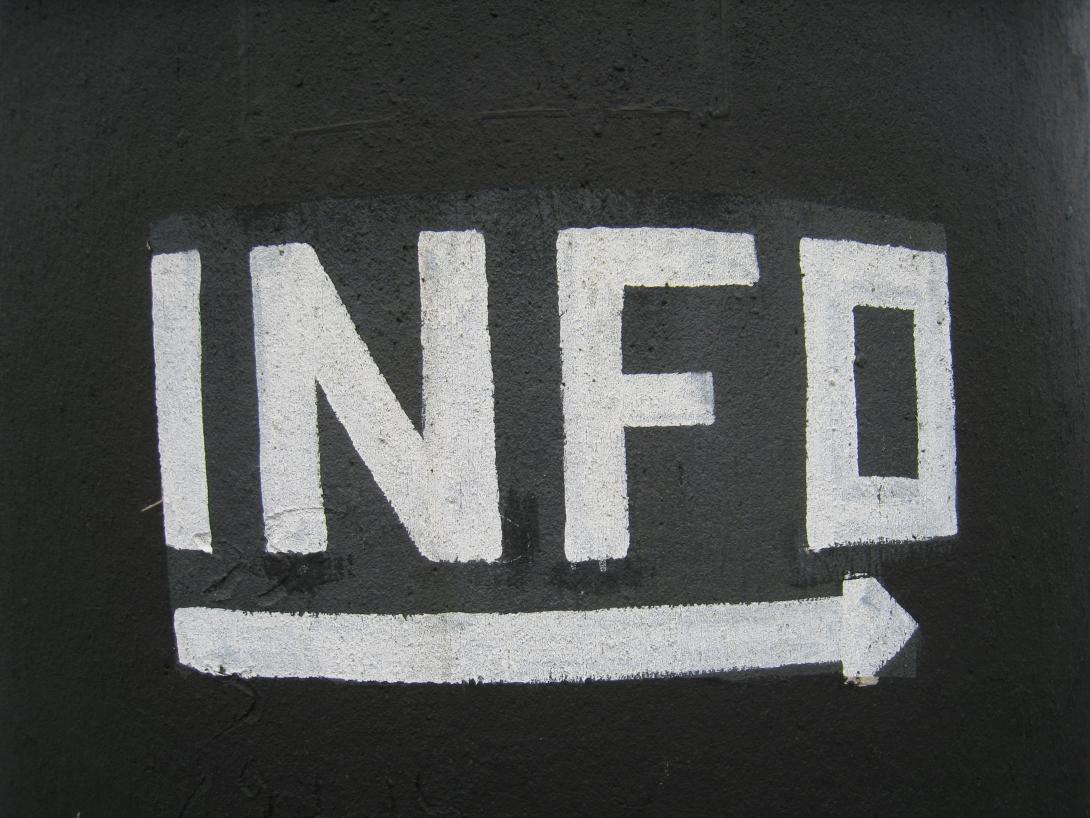Degree class L8 - Information Engineering
The students' initial preparation is tested by administering a multiple-choice test with four different sections: mathematics, logic, science and verbal comprehension.
automatically translated page
The Bachelor of Science in Electronic Engineering offers a wide-ranging preparation which, starting from the basic sciences (Mathematics, Physics and Computer Science), enables students to acquire skills in the fields of circuit electronics and digital systems, telecommunications and automation. The training enables both a rapid entry into the world of work and the continuation of studies.
From the first year onwards, training activities include not only classroom lectures, but also laboratory activities in both hardware and software (https://www.ingmo.unimore.it/it/laboratori-didattici) with the aim of facilitating understanding of the various topics addressed and developing those design and implementation skills that are fundamental characteristics for every engineer. It is possible to carry out company internships or at the research laboratories of the 'Enzo Ferrari' Department of Engineering
Graduates find employment mainly, but not exclusively, as electronic designers and technicians in various industrial fields such as telecommunications and industrial automation systems, automotive and vehicle electronics, biomedical equipment, and energy conversion systems.


The members of the Study Course Councils (CdS) are defined annually on the basis of the prevailing teaching loads.
Each Council is assisted in the planning and/or revision of the educational offering by a Steering Committee, which meets at least once a year.
The Degree Course in Electronic Engineering has established the obligation for all students to compile a study plan. The study plan must be submitted during the third year of the course, roughly between October and November (dates to be confirmed each year).
Compilation must normally be carried out via the Web on Esse3, at the address, 'Career Plan', and only in special cases on paper using the special form distributed at the Engineering Student Secretariat (Via Campi 213/b).
Please note that a student who has not completed his or her study plan within the prescribed period will be assigned a compulsory standard study plan that will become his or her actual plan.
Standard-status plan for the cohort* of students matriculated in the a.y. 2017/2018, 2018/2019, 2019/2020 and 2020/21.
The study plan must include, in addition to compulsory training activities, training activities of the student's choice (12 CFU) and other activities (3 CFU), pursuant to Article 10, paragraph 5, letter d of DM270, for a total of 15 CFU, choosing them from those envisaged by the Course of Studies as optional.
Students who have not completed their study plan within the prescribed period are assigned a standard-statutory study plan, which becomes their compulsory plan and which envisages the following courses for the acquisition of the 15 CFU as electives: Electrical Machines and Drives, Electromagnetic Compatibility, Electromagnetic Compatibility and Laboratory, Advanced English.
TECHNICAL INFORMATION ON THE ONLINE
COMPILATION The online plan can be completed in two ways, which can be viewed once you have entered the Esse3 personal area, under the heading Career plan:
1) a 'plan scheme' - APPR - whereby the completed plan is automatically approved: in this scheme, only the courses offered by the Bachelor of Electronic Engineering are offered;
2) an 'outline plan' - PROP- which instead remains in a state of evaluation (it must be approved by the Course Council) and is only to be chosen by:
- students coming from a transfer/transfer from another Degree Course/Athenaeum who have had elective examinations recognised as having already been approved by a resolution of their Degree Course Council and uploaded onto their electronic transcript. Only in the case in which the cfu of the transfer resolution exceeds 18 cfu (the PROP plan foresees a 183 cfu closure), the compilation of the plan must be carried out by means of the special paper form available at the Student Secretariat in via Campi 213/b, to be returned before the deadline during the reception hours
- students who have had optional exams in Erasmus already approved by resolution of their own Degree Course Council and uploaded onto their electronic booklet; - students who are
sure to take part in the Formula Student
project, after having asked the Student secretariat to upload the coursework to their transcripts; - students who wish to take extra-emergency examinations in Electronics, after having asked the Student secretariat to upload the teaching activities to their transcripts; it is advisable, if one intends to take extra-emergency examinations, to obtain prior information from the President of the Degree Course, in order to avoid non-approval, which would lead, in the event that the extra-emergency examinations have already been taken, to NOT being able to consider them in one's career (since they will be considered supernumerary) and therefore requiring one to take further examinations.
Plans in PROP status will be evaluated by the Course Council following the deadline for plan compilation.
The student will be contacted if the plan is rejected for re-filling.
This document illustrates the final exam for students enrolled in courses under DM270/04 and describes the procedure to be followed in order to be admitted.
The final examination is a public oral test aimed at ascertaining the achievement of the specific educational objectives of the degree course. It may consist of:
- a) in the presentation and discussion of a report on the activity carried out during the internship - under the supervision of a lecturer/researcher - in industries, companies or external bodies, on the basis of appropriate agreements;
- b) in the presentation and discussion of a report on the activity carried out - under the supervision of a lecturer/researcher - at research laboratories of the University of Modena and Reggio Emilia or of other public or private research bodies, on the basis of specific agreements;
- c) in the presentation and discussion of a paper on topics related to subjects in the study plan, assigned by a lecturer/researcher.
The Final Examination may be taken in a foreign language, agreed in advance with the President of the CCdS. In this case, an extended summary of the work/activity carried out in Italian must also be prepared.
Students, after having obtained no less than 140 CFU, choose the title of their Final Examination from a list available on the web.
For the chosen title students must send an email to the President of the Interclass Council specifying the Title and the name of the Tutor (teacher/researcher) of the chosen Final Examination. The Tutor will provide information and help the student prepare for the chosen Final Examination.
At least two days before the Final Examination, students must email the members of the Examination Board a pdf copy of their report on the work carried out for the Final Examination.
The Examination Board assesses the Final Examination and, in the event of a pass, awards a full mark from 0 to 3 hundredths, taking into account the quality of the work carried out and the expository capacity demonstrated
Tutoring, in compliance with the provisions of Article 13 of Law 341/90, is a service designed to assist students enrolled at university throughout their studies, removing obstacles to successful course attendance and encouraging active participation in university life.
The tutor teacher is a point of reference to whom students can turn for advice, for help with their studies and for all forms of assistance aimed at making their university studies more effective and productive.
In particular, the tutor teacher can provide methodological and didactic support, aimed at overcoming learning difficulties (e.g. preparing for an exam, relating the contents of the various disciplines, clarifying doubts on study subjects) or can contact students in difficulty directly to propose support actions arranged by the University.
(for courses of study organised according to DM 270/04).
Compulsory propaedeuticities are defined for each course with the aim of facilitating full enjoyment of the teaching provided. They may be revised before the beginning of each academic year.
The compulsory propaedeuticities of all cohorts* of students who matriculated in the a.y. 2024/25, 2023/2024 are:
| TEACHING | SSD | SEM. | CFU | PROPAEDEUTICITY |
|---|---|---|---|---|
| I YEAR | ||||
| Mathematical Analysis I | MAT/05 | 1 | 9 | Ofa |
| Fundamentals of Computer Science | ING-INF/05 | 1 | 9 | |
| Linear Algebra | MAT/03 | 1 | 9 | Ofa |
| English | L-LIN/12 | 1 | 3 | |
| Mathematical Analysis II | MAT/05 | 2 | 9 | Ofa |
| Physics and Chemistry | FIS/01 - CHIM/07 | 2 | 15 | Ofa |
| Circuit Electronics Laboratory | ING-INF/01 | 2 | 6 | |
| II YEAR | ||||
| Mathematical Methods and Models | MAT/05 | 1 | 6 | |
| Architecture of Electronic Computers | ING-INF/05 | 1 | 9 | |
| Theory of Aleatoric Phenomena | MAT/06 | 1 | 6 | |
| Automatic Controls | ING-INF/04 | 2 | 9 | |
| Signals and Systems for Telecommunications | ING-INF/03 | 2 | 9 | |
| Circuit Theory | ING-IND/31 | 1 | 6 | |
| Digital Electronic Systems | ING-INF/01 | 2 | 9 | |
| Advanced English | L-LIN/12 | 2 | 3 | English |
| III YEAR | ||||
| Electromagnetic Propagation and Antennas | ING-INF/02 | 1 | 9 | English |
| Analogue Electronics | ING-INF/01 | 1 | 12 | English |
| Telecommunications and Internet Networks | ING-INF/03 | 1 | 9 | English |
| Economics and Business Organisation | ING-IND/35 | 2 | 6 | English |
| Electronic Measurements | ING-INF/07 | 2 | 9 | English
|
The compulsory propaedeuticities of all cohorts* of students matriculating in the 2022/2023 academic year are:
| TEACHING | SSD | SEM. | CFU | PROPAEDEUTICITY |
|---|---|---|---|---|
| I YEAR | ||||
| Mathematical Analysis I | MAT/05 | 1 | 9 | Ofa |
| Fundamentals of Computer Science and Laboratory | ING-INF/05 | 1 e 2 | 12 | |
| Geometry | MAT/03 | 1 | 9 | Ofa |
| English | L-LIN/12 | 1 | 3 | |
| Mathematical Analysis II | MAT/05 | 2 | 9 | Ofa |
| Physics | FIS/03 | 1 e 2 | 12 | Ofa |
| Applied Mathematics and Statistics | MAT/06 | 2 | 6 | Ofa |
| II YEAR | ||||
| Mathematical Methods and Models | MAT/05 | 1 | 6 | |
| Electronic Computers | ING-INF/05 | 1 | 9 | |
| Economics and Business Organisation | ING-IND/35 | 1 | 6 | |
| Automatic Controls | ING-INF/04 | 2 | 9 | |
| Fundamentals of Signals and Systems for Telecommunications | ING-INF/03 | 2 | 9 | |
| Electrical Engineering and Laboratory | ING-IND/31 | 2 | 9 | |
| Chemistry | CHIM/07 | 1 | 6 | |
| Advanced English | L-LIN/12 | 2 | 3 | English |
| III YEAR | ||||
| Applied Electromagnetism | ING-INF/02 | 1 | 9 | English |
| Analogue Electronics | ING-INF/01 | 1 | 12 | English |
| Telecommunications Networks and Laboratory | ING-INF/03 | 1 | 9 | English |
| Digital Electronic Systems | ING-INF/01 | 2 | 9 | English |
| Electronic Measurements and Laboratory | ING-INF/07 | 2 | 9 | English
|
The compulsory propaedeuticities of all cohorts* of students matriculating in the 2021/2022 academic year are:
| TEACHING | SSD | SEM. | CFU | PROPAEDEUTICITY |
|---|---|---|---|---|
| I YEAR | ||||
| Mathematical Analysis I | MAT/05 | 1 | 9 | Ofa |
| Fundamentals of Computer Science and Laboratory | ING-INF/05 | 1 e 2 | 12 | |
| Geometry | MAT/03 | 1 | 9 | Ofa |
| English | L-LIN/12 | 1 | 3 | |
| Mathematical Analysis II | MAT/05 | 2 | 9 | Ofa |
| Physics | FIS/03 | 1 e 2 | 12 | Ofa |
| Applied Mathematics and Statistics | MAT/06 | 2 | 6 | Ofa |
| II YEAR | ||||
| Mathematical Methods and Models | MAT/05 | 1 | 6 | |
| Electronic Computers | ING-INF/05 | 1 | 9 | |
| Economics and Business Organisation | ING-IND/35 | 1 | 6 | |
| Automatic Controls | ING-INF/04 | 2 | 9 | |
| Fundamentals of Signals and Systems for Telecommunications | ING-INF/03 | 2 | 9 | |
| Electrical Engineering and Laboratory | ING-IND/31 | 2 | 9 | |
| Chemistry | CHIM/07 | 1 | 6 | |
| Advanced English | L-LIN/12 | 2 | 3 | English |
| III YEAR | ||||
| Applied Electromagnetism | ING-INF/02 | 1 | 9 | English |
| Electronics I | ING-INF/01 | 1 | 12 | English |
| Telecommunications Networks and Laboratory | ING-INF/03 | 1 | 9 | English |
| Electronics II | ING-INF/01 | 2 | 9 | English |
| Electronic Measurements and Laboratory | ING-INF/07 | 2 | 9 | English
|
The compulsory propaedeuticities of all cohorts* of students matriculating in the academic year 2020/2021 are:
| TEACHING | SSD | SEM. | CFU | PROPAEDEUTICITY |
|---|---|---|---|---|
| I YEAR | ||||
| Mathematical Analysis I | MAT/05 | 1 | 9 | Ofa |
| Fundamentals of Computer Science and Laboratory | ING-INF/05 | 1 e 2 | 12 | |
| Geometry | MAT/03 | 1 | 9 | Ofa |
| English | L-LIN/12 | 1 | 3 | |
| Mathematical Analysis II | MAT/05 | 2 | 9 | Ofa |
| Physics | FIS/03 | 1 e 2 | 12 | Ofa |
| Fundamentals of Computer Science II and Lab. | ING-INF/05 | 2 | 9 | |
| Mathematics | MAT/06 | 2 | 6 | Ofa |
| II YEAR | ||||
| Mathematical Methods and Models | MAT/05 | 1 | 6 | |
| Electronic Computers | ING-INF/05 | 1 | 9 | |
| Economics and Business Organisation | ING-IND/35 | 1 | 6 | |
| Mathematical Analysis II | MAT/05 | 1 | 9 | |
| Electrical Communications | ING-INF/03 | 2 | 9 | |
| Automatic Controls | ING-INF/04 | 2 | 9 | |
| Electrical Engineering and Laboratory | ING-IND/31 | 2 | 9 | |
| Advanced English | L-LIN/12 | 2 | 3 | English |
| III YEAR | ||||
| Applied Electromagnetism | ING-INF/02 | 1 | 9 | English |
| Electronics I | ING-INF/01 | 1 | 12 | English |
| Telecommunications Networks and Laboratory | ING-INF/03 | 1 | 9 | English |
| Electronics II | ING-INF/01 | 2 | 9 | English |
| Electronic Measurements and Laboratory | ING-INF/07 | 2 | 9 | English
|
The compulsory propaedeuticities of all cohorts* of students who matriculated in the academic year 2019/2020 are:
| TEACHING | SSD | SEM. | CFU | PROPAEDEUTICITY |
|---|---|---|---|---|
| I YEAR 2019/2020 | ||||
| Mathematical Analysis I | MAT/05 | 1 | 9 | Ofa |
| Fundamentals of Computer Science and Laboratory | ING-INF/05 | 1 e 2 | 12 | |
| Geometry | MAT/03 | 1 | 9 | Ofa |
| English | L-LIN/12 | 1 | 3 | |
| Mathematical Analysis II | MAT/05 | 2 | 9 | Ofa |
| Physics | FIS/03 | 1 e 2 | 12 | Ofa |
| Fundamentals of Computer Science II and Lab. | ING-INF/05 | 2 | 9 | |
| Mathematics | MAT/07 | 2 | 6 | Ofa |
| II ACTIVE YEAR 2020/2021 | ||||
| Mathematical Methods and Models | MAT/05 | 1 | 6 | Mathematical Analysis I |
| Electronic Computers | ING-INF/05 | 1 | 9 | |
| Economics and Business Organisation | ING-IND/35 | 1 | 6 | |
| Mathematical Analysis II | MAT/05 | 1 | 9 | |
| Electrical Communications | ING-INF/03 | 2 | 9 | |
| Automatic Controls | ING-INF/04 | 2 | 9 | |
| Electrical Engineering and Laboratory | ING-IND/31 | 2 | 9 | |
| Advanced English | L-LIN/12 | 2 | 3 | English |
| III ACTIVE YEAR 2021/2022 | ||||
| Applied Electromagnetism | ING-INF/02 | 1 | 9 | English |
| Electronics I | ING-INF/01 | 1 | 12 | English |
| Telecommunications Networks and Laboratory | ING-INF/03 | 1 | 9 | English |
| Electronics II | ING-INF/01 | 2 | 9 | English |
| Electronic Measurements and Laboratory | ING-INF/07 | 2 | 9 | English |
The compulsory propaedeuticities of all cohorts* of students who matriculated from the a.y. 2016/17 onwards are:
| TEACHING | COMPULSORY PROPAEDEUTICITIES |
|---|---|
| Mathematical Analysis II | Mathematical Analysis I |
| Electronic Computers | Fundamentals of Computer Science and Laboratory |
| Advanced English | English |
| For all MAT/xx and FIS/xx first-year subjects -> OFAs | |
| For all compulsory subjects in Year III -> English | |
Archive Propedeuticity
The compulsory propaedeuticities of all cohorts* of students who matriculated from a.y. 2014/15 to a.y. 2015/2016 are:
| TEACHING | COMPULSORY PROPAEDEUTICITIES |
|---|---|
| Mathematical Analysis II | Mathematical Analysis I |
| Electronic Computers | Fundamentals of Computer Science and Laboratory |
| Physics II | Physics I and Laboratory |
| Advanced English | English |
| For all MAT/xx and FIS/xx first-year subjects -> OFAs | |
| For all compulsory subjects in Year III -> English | |
The compulsory propaedeuticities of all cohorts* of students who matriculated from A.Y. 2010/11 to A.Y. 2013/2014 are:
| TEACHING | COMPULSORY PROPAEDEUTICITIES |
|---|---|
| Mathematical Analysis II | Mathematical Analysis I |
| Electronic Computers | Fundamentals of Computer Science and Laboratory |
| Physics II | Physics I and Laboratory |
| Advanced English | English |
| For all MAT/xx and FIS/xx first-year subjects -> OFAs | |
*A cohort of students is defined as the set of students who, having matriculated in an Academic Year (A.A.) or enrolled in the first year coming from another CoS, Department or University, or enrolled in the first year as repeat students, follow the normal course of the bachelor degree over the three years.
A cohort defined as above may acquire new elements (students coming from other cohorts, Study Centres, Departments or Universities and enrolled gradually in the second or third year) or lose elements (students who do not pass the admission requirements for the second year and join the subsequent cohorts).
Each student is bound to the subjects and the relative programmes of the year in which he/she is enrolled, as set out in the Study Manifesto for each academic year, while he/she must consider only in indicative terms the subjects of the following years proposed by the Study Manifesto, since they are subject to possible revisions and modifications before the formulation of the Manifesto for the following academic year.
You can find the Study Program's documents about the Quality Assurance at the link below.


